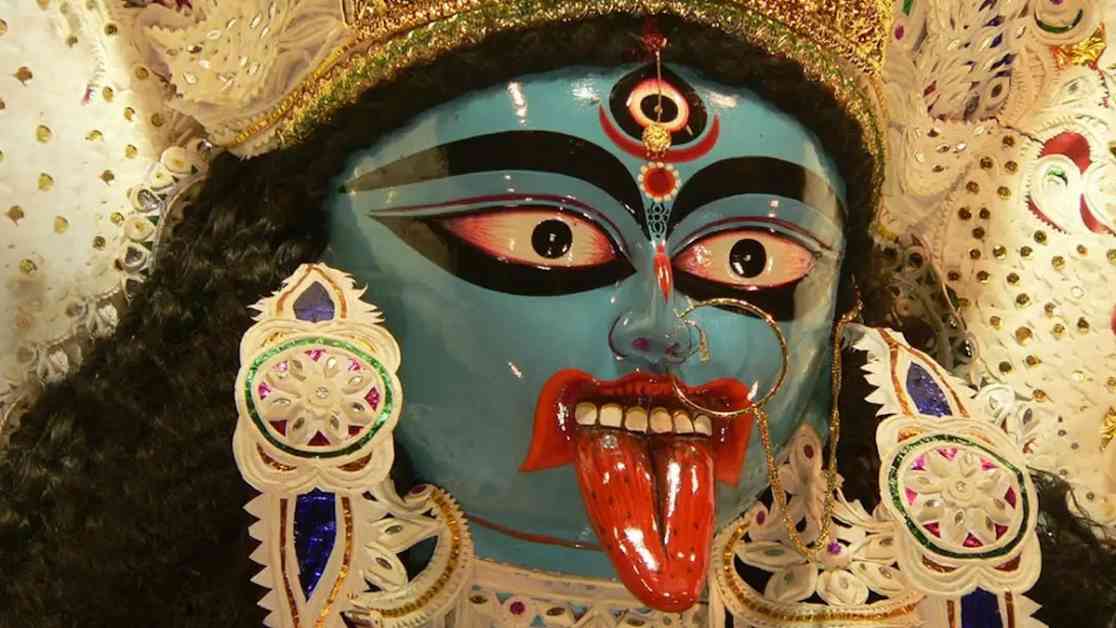Goddess Kali is a fascinating deity in Hindu mythology, known for her connection to time, death, and destruction. The rolling red tongue of Kali holds deep symbolism, representing the Tamas guna, which symbolizes darkness and chaos. According to history scholar Sumit Biswas, the folklore of Kali rolling out her tongue in embarrassment is a later incorporation created by a male-dominated society to showcase a husband-wife relationship.
Sadhaks or Kali worshippers attach profound significance to Kali’s tongue, viewing it as a triumph over lust and base emotions. The white of Kali’s teeth contrasting with her red tongue symbolizes the triumph of enlightenment over greed and lust. Biswas explains that Kali’s facial iconography symbolizes the dominance of light over spiritual and psychological blindness.
The historical context of Kali’s rolling tongue can be traced back to ancient temples like Kalkaji in Delhi, where an Ekanamsha like Kalka Devi is worshipped. In Bengal and Odisha, Kali’s extended tongue is interpreted as an expression of embarrassment over stepping on her husband Shiva’s chest. Biswas highlights the significance of Balaka Matrika, a historical prototype of Goddess Kali, whose pointed nose evolved into Kali’s extended tongue over time.
Goddess Kali plays a significant role in Hindu mythology, particularly in stories like her emergence from Goddess Durga’s fury to defeat the demon Raktabija. She is worshipped as the Divine Mother and revered for her role in destroying evil and protecting the innocent. Kali embodies divine feminine energy and is a symbol of empowerment and strength in Hindu religious practice.
In conclusion, Goddess Kali’s rolling red tongue holds deep symbolism in Hindu mythology, representing the triumph of enlightenment over base emotions like greed and lust. The historical context of Kali’s tongue can be traced back to ancient temples, highlighting the evolution of her iconic imagery. Kali’s significance as a symbol of empowerment and protection in Hindu mythology continues to resonate with devotees and scholars alike.














